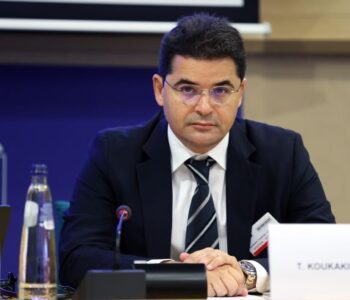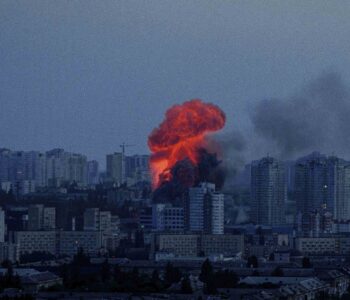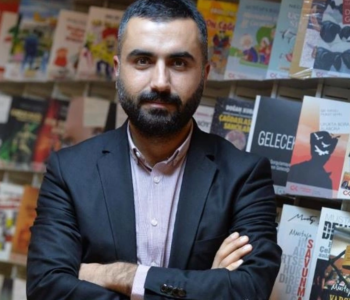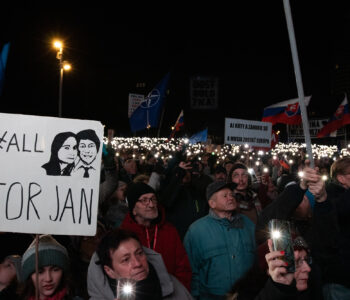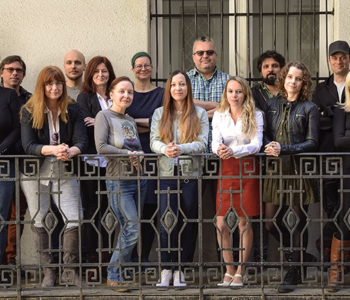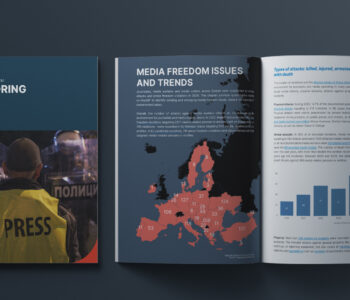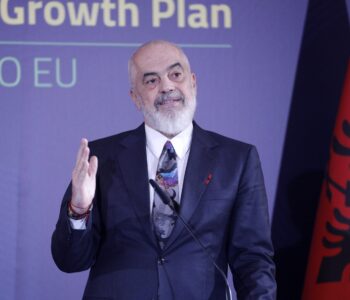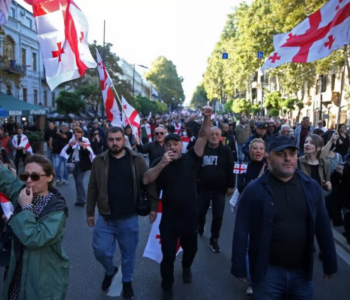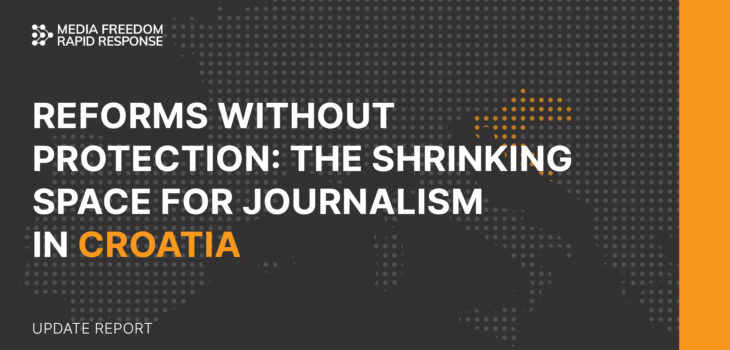
Reforms without Protection: The Shrinking Space for Journalism in Croatia
The Media Freedom Rapid Response (MFRR) consortium today publishes an updated report on the state of media freedom in Croatia following an advocacy mission to Zagreb between 19 to 21 May 2025.
11 June 2025
The purpose of the mission was to assess the government’s progress in implementing recommendations made following the MFRR online fact-finding mission in September 2024, and to identify new and emerging threats to media freedom and independent journalism.
During the three-day visit, the delegation engaged with a diverse range of stakeholders, including journalists, publishers, media leaders, representatives from journalist associations and unions, and key institutional actors such as the Ministry of Culture and Media, the Ministries of Justice and Internal Affairs, and the Agency for Electronic Media, among others.
As outlined in the mission press conference in Zagreb, the advocacy mission to Croatia revealed a gap in perceptions between government representatives and journalists on the ground. The mission observed that progress has been made in transposing the Anti-SLAPP directive and establishing a database for the transparency of media ownership, alongside the implementation of government safety protocols for journalists and training within newsrooms, as emphasised by the government.
Journalists reported ongoing threats, a lack of adequate protection, poor working conditions, and significant political and economic pressures, including media capture, editorial interference, smear campaigns and financial instability. Strategic lawsuits against public participation (SLAPPs), anti-media rhetoric, and delays in implementing the European Media Freedom Act (EMFA) continue to undermine press freedom.
The political landscape, characterised by efforts to defund critical media such as Novosti and the weakening of independent outlets like N1, has exacerbated concerns. The government’s use of state advertising to reward favourable coverage and its control over the public broadcaster were identified as key tools of media manipulation.
The mission concludes that while the government has made some progress, the measures to protect media freedom are insufficient and at times inconsistent. Unless comprehensive reforms are promptly enacted, including proper implementation of EU legislation, stronger legal protections, actions ensuring the continued existence of public interest journalism, and consistent enforcement of journalist safety protocols, the space for free and independent journalism in Croatia will continue to deteriorate.
The Media Freedom Rapid Response stands ready to participate in any public consultations or initiatives aimed at reinforcing media freedom in Croatia.
The mission was led by the European Centre for Press and Media Freedom (ECPMF) and the European Federation of Journalists (EFJ), and joined by representatives from ARTICLE 19 Europe, Free Press Unlimited (FPU), the International Press Institute (IPI), and OBC Transeuropa (OBCT).

